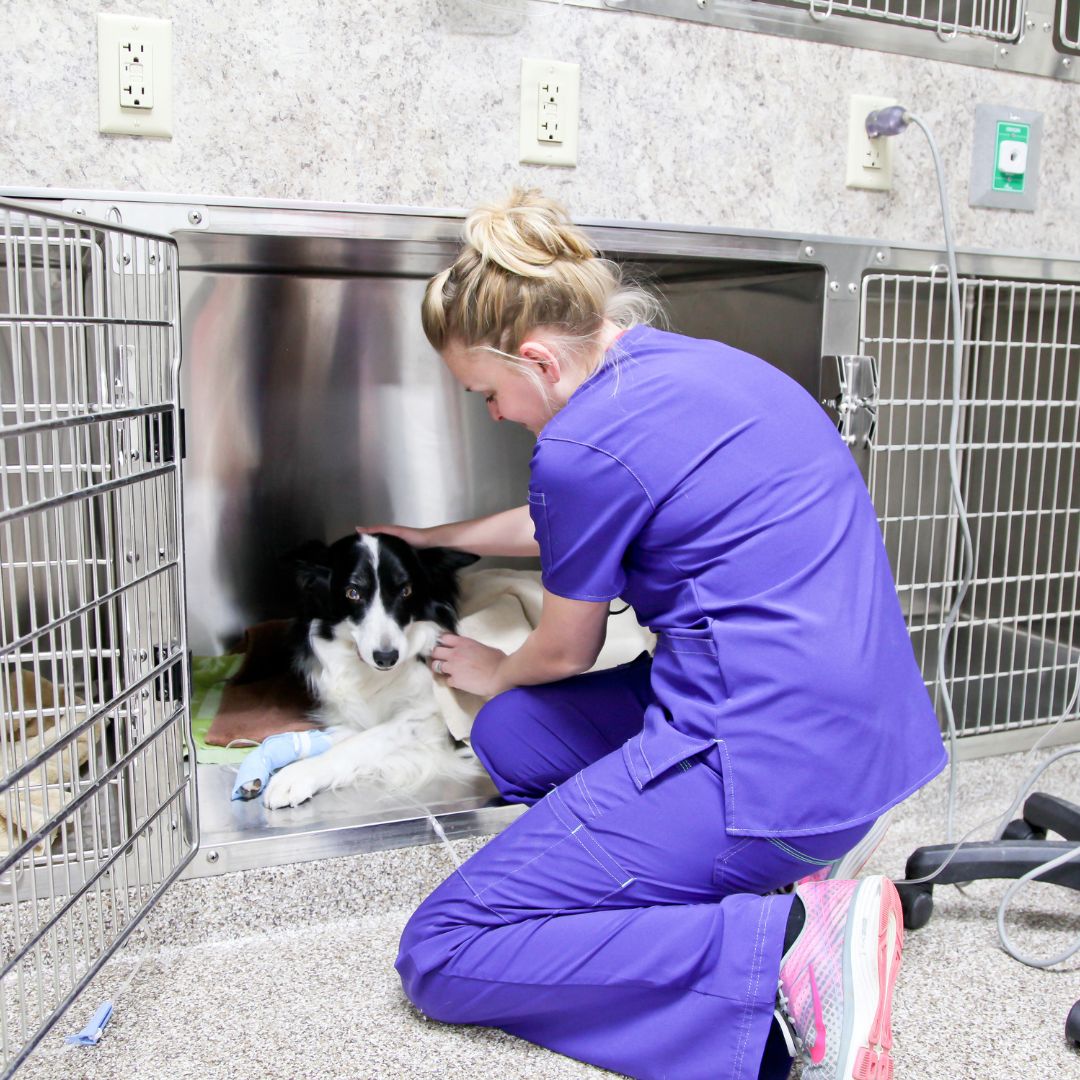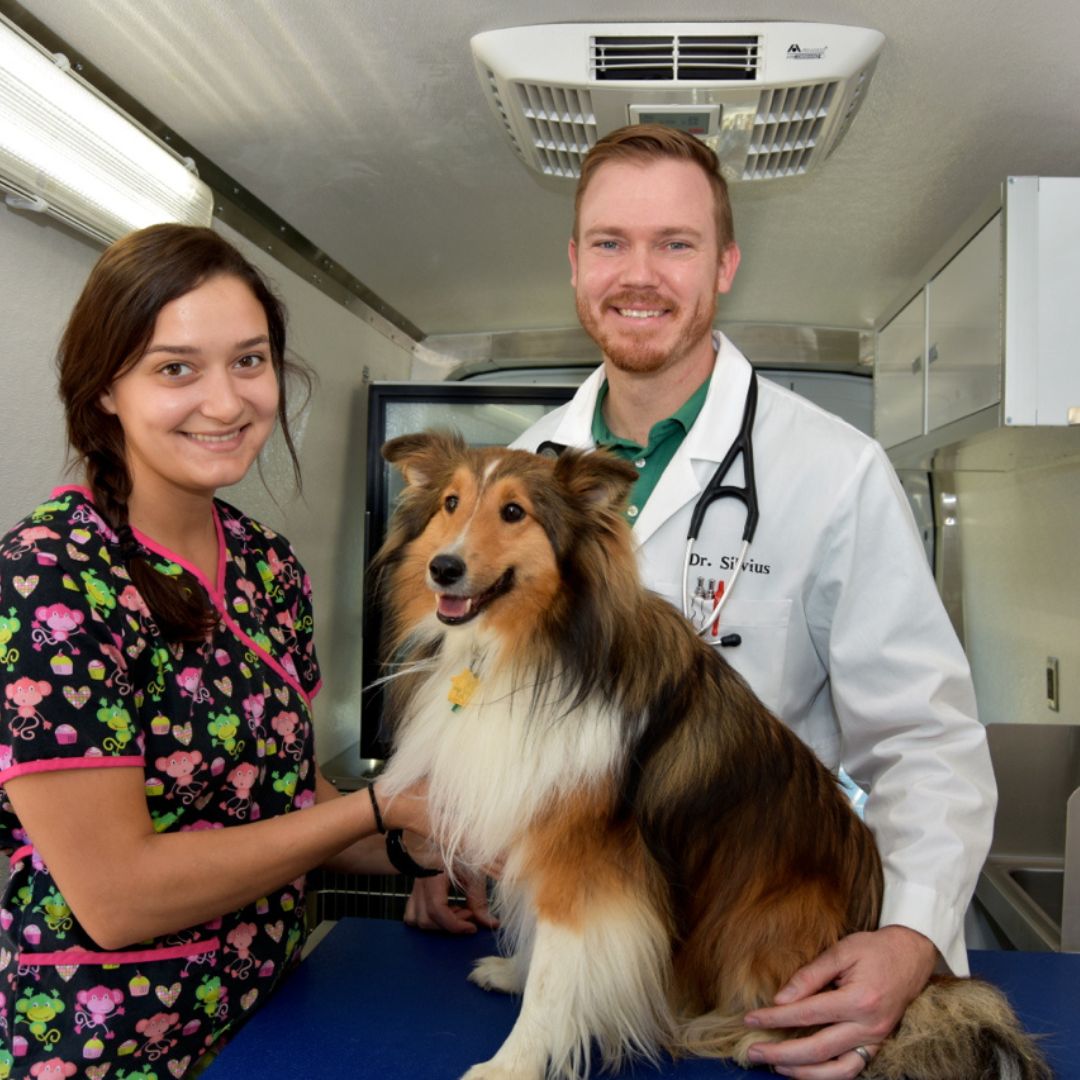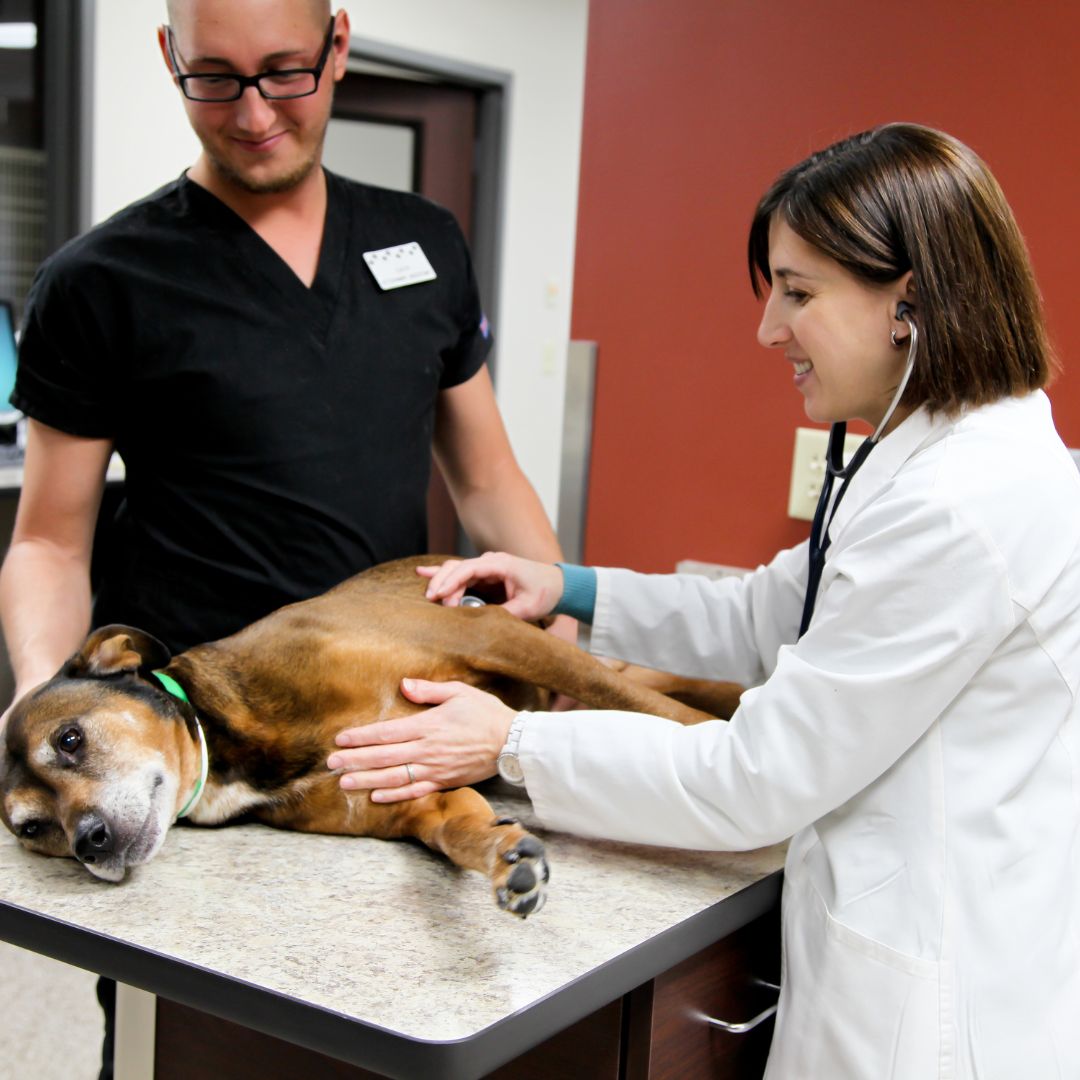Eagle Animal Hospital’s branches in Kansas City are committed to keeping your furry friend healthy and happy. One condition that we frequently diagnose and treat is heart disease in dogs. Like humans, they can develop various heart conditions that can affect their quality of life and even lead to death if left untreated. Early detection is crucial in managing heart disease in pets so you can seek prompt veterinary care.
Here are four common signs of heart disease in dogs:

Coughing
A persistent cough can be a sign of several health conditions, including heart disease. If your dog has a cough that doesn’t seem to go away or is getting worse, it’s essential to take them to the vet. A cough caused by heart disease is usually dry and persistent, and it may be more noticeable when your dog is lying down.

Shortness Of Breath
If your dog is having difficulty breathing or seems to be panting excessively, it could be a sign of heart disease. Heart disease can cause fluid to build up in your dog’s lungs, making it harder for them to breathe. If your dog is struggling to catch their breath, seek veterinary attention right away.

Fatigue
If your dog is lethargic or seems to tire easily, it could be a sign of heart disease. When your dog’s heart isn’t functioning correctly, it can lead to decreased oxygen and nutrients getting to the rest of the body, causing them to feel weak and tired.

Loss Of Appetite
If your dog suddenly loses interest in food or stops eating altogether, it could be a sign of heart disease. A dog’s appetite can decrease when they don’t feel well, and heart disease can make your dog feel nauseous and not want to eat.
Heart disease can affect dogs of all ages and breeds, and it’s essential to be aware of the common signs. If you notice any of the symptoms mentioned above, take your dog to Eagle Animal Hospital right away. Early detection and treatment can significantly improve your dog’s quality of life and increase their chances of a longer, healthier life. If you suspect your dog may have heart disease, don’t hesitate to contact us and schedule an appointment.
